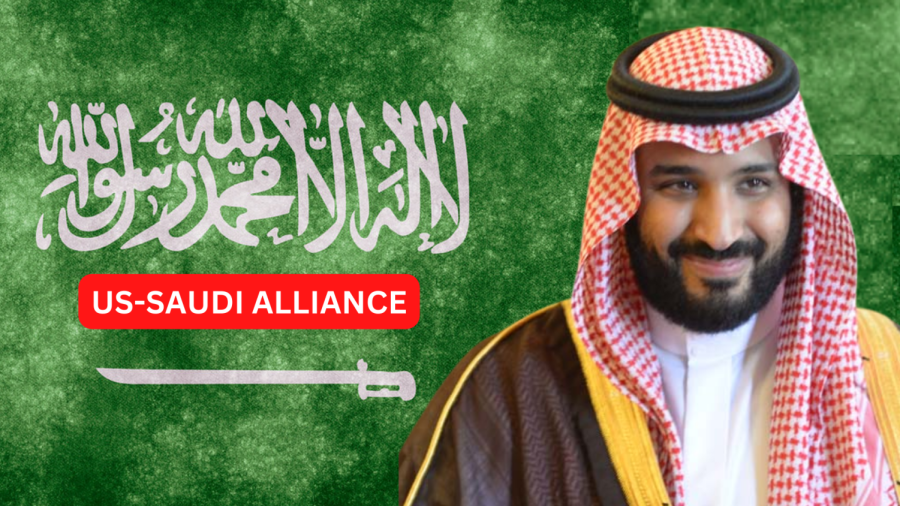US-Saudi Alliance faces uncertainty
The US-Saudi alliance is rooted in more than seven decades of close friendship and cooperation.
November 28, 2022
Nationwide gas prices are rising for the first time since June, leaving Americans looking for answers. This time, however, price hikes do not originate from the Kremlin; they come from an organized effort by the Organization of Petroleum Exporting Countries, or OPEC.
“OPEC is an alliance of oil-producing countries that collaborate to corner the energy market and determine global oil prices by raising and lowering production because they’re large enough producers to manipulate the market,” said AP World History teacher Christopher Murphy.
OPEC’s power over the petroleum industry makes friendly relations advantageous, potentially giving allied nations better oil prices.
“America has a close relationship with Saudi Arabia: they’re the largest and most powerful country in OPEC so staying in their good graces is important for global strategic purpose,” said Murphy.
Dating back to 1945, the US-Saudi alliance was formalized seven years after American companies discovered oil in the country, with the Saudi government selling oil to the US in exchange for weapons, and the two nations cooperating in opposition to the Soviet Union.
Despite these ties, the organization, involving members from the Middle East, sub-Saharan Africa, and Latin America cut production by 2 million barrels daily in October, lowering supply and increasing the global price of oil.
“Ordinary people pay what the global price is, which may be higher or lower depending on what OPEC is doing. Right now, prices are higher so OPEC is restricting production. Ordinary Americans pay for it in two ways: higher gas prices and higher transportation prices for all the goods that are being consumed,” said Murphy.
The sudden cut in production, however, does more than hamper the consumer. It also indirectly aids Russia, increasing Moscow’s oil revenue despite limited exports, leading to American condemnation of the conglomerate and Saudi Arabia (its leader).
“There’s going to be some consequences for what [Saudi Arabia has] done with Russia,” said US President Joe Biden.
With animosity growing, the US has a multitude of reasons to find another oil-exporting ally. Saudi Arabia’s policies, both internal and foreign, have been alleged of violating international law, such as its war crimes in Yemen and abysmal human rights laws.
“The US could replace Saudi Arabia, especially if they don’t change some of the laws regarding the treatment of women or certain ethnic groups in the country. If they don’t progress to be more in line with western democratic societies, there could be other countries that sell oil like Venezuela that may decide to closely adhere to western democracy,” said Murphy.
Saudi Arabia, for its part, is making limited efforts towards maintaining this alliance, for it has much to gain from it, slowly loosening some of its more controversial legislation.
“If a country is friendly to the US, that gives them access to all sorts of banking opportunities, finance opportunities to move or borrow money, finance large projects. They also buy a lot of weapons from the US, weapons which they can’t get from anywhere else, to use in their own strategic endeavors,” said Murphy.
These efforts, however, have been acclaimed to be almost entirely two-faced. Despite allowing women to drive in 2018, Saudi Arabia is notorious for its male guardianship system in which each Saudi woman is required to have a male guardian for their entire life, controlling things as rudimentary as whether they may leave the country.
“We live in the 21st century and the world has advanced, so I think it’s important for the rights of all people to be recognized now,” said Mayank Narla (‘25).




